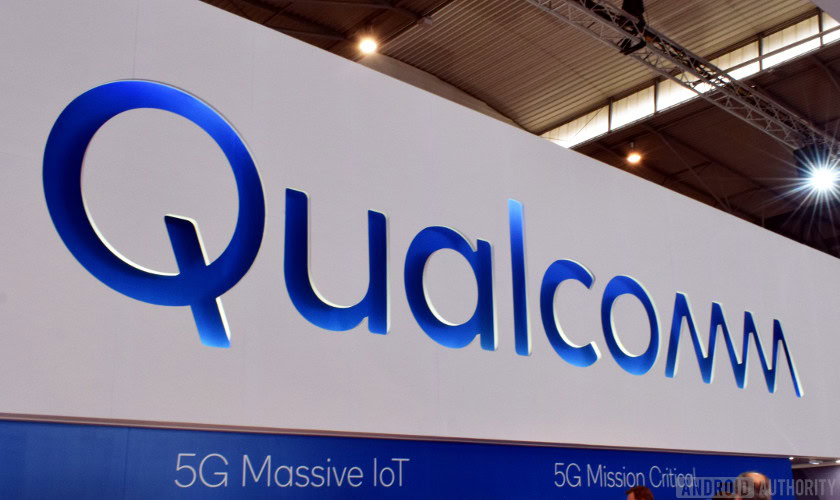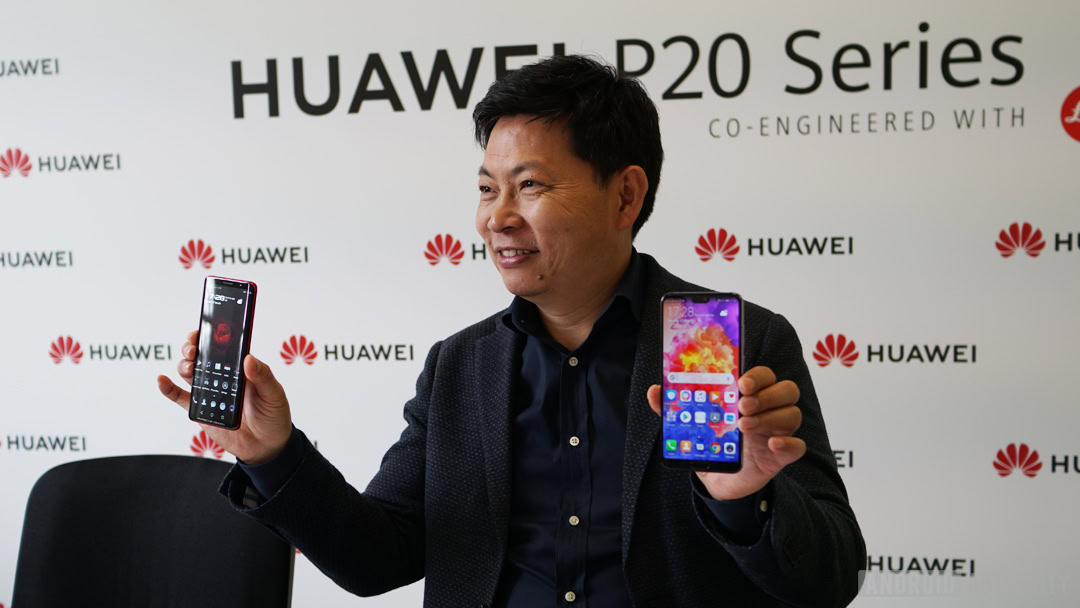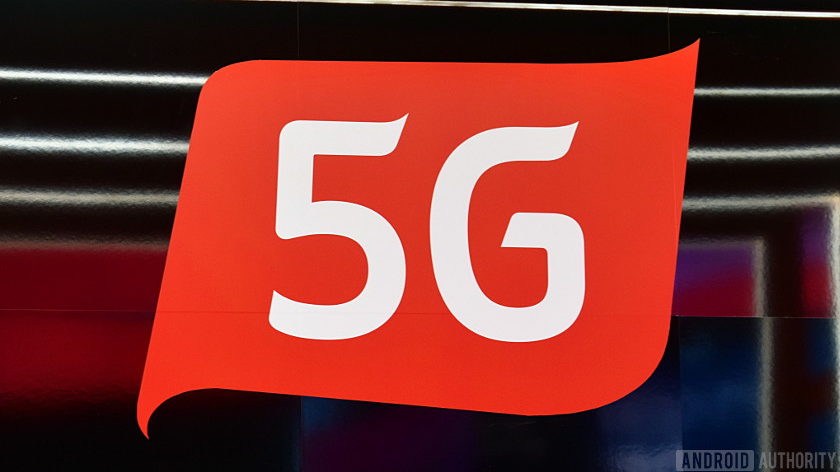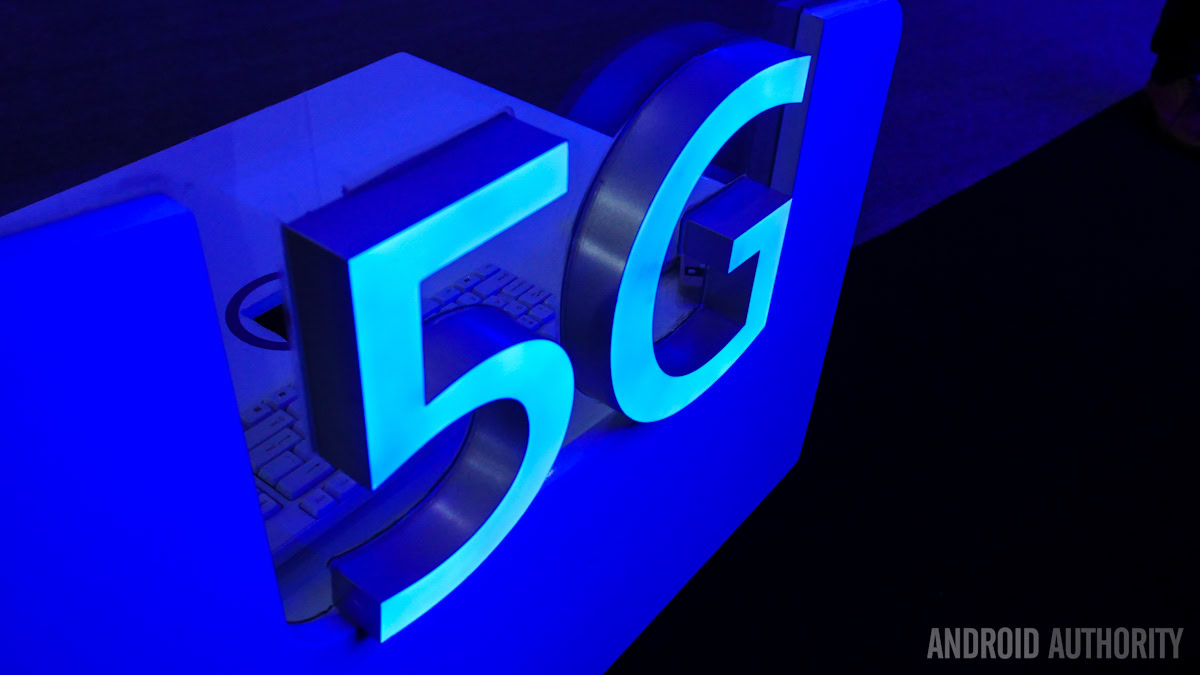Affiliate links on Android Authority may earn us a commission. Learn more.
US, China, and the smartphone in your pocket
April 10, 2018

How do the Broadcom, Qualcomm, HUAWEI, and Trump tariff headlines affect you, and your phone?
It seems the war of words between the United States and China is moving to a war on trade and a fight over intellectual property theft is brewing. President Donald Trump announced new tariffs on Chinese exports as a way of retaliating against China’s IP theft. A crackdown on China’s rampant IP issues is long overdue and it’s also a convenient solution to the separate problem of competition in manufacturing between the U.S. and China.
The exact details of the tariffs have been rolling out over the past day or so, with Mr. Trump true to his word, noting that they would cover electronics and IT. The full list of 1300 items across 58 pages is here. With a number of components, such as batteries, displays, and other technologies, the mobile phone industry will be affected by this. It’s more than just a price rise, or being unable to get a HUAWEI phone through AT&T — Chinese companies play a huge role in multiple facets of the industry. China promptly reciprocated, announcing tariffs on 106 U.S. products at a similar approximate value.
Trump's tariffs will hurt some electronics and IT being manufactured in China
The end result of the tariff battle could affect the price of your next phone, the network it will connect to, the hardware inside it, and which phones you’re even able to buy from a carrier or a store.
Internals
Starting with many of the important components in your smartphone, including the processors and modems, we come to the failed Broadcom-Qualcomm acquisition. Without the interference of Broadcom ownership, Qualcomm will continue to rule the roost for viable SoC options. Its position is quite broad, although its main patent technologies are being phased out. Currently, its range of patents forces companies like Samsung, which make its own Exynos SoC, to use Snapdragon processors in the U.S. for CDMA support. It’s a massive patent owner, and, like Intel, it’s important to maintaining U.S. competitiveness in ARM, LTE, and 4G and 5G processing.

But Qualcomm faces a raft of difficulties ahead.
“It will have more competitive pressures than ever as Intel, among others, have put a significant amount in R&D to ensure it is a major player,” Angelo Zino, senior industry analyst at CFRA Research, told USA Today.
The company also has its own enormous proposed acquisition prospect — Dutch automotive chip maker NXP Semiconductors for $43 billion — which still needs the approval of China’s competition regulator, the Ministry of Commerce.
Read more: A lack of alternatives to Qualcomm is hurting Android.
Qualcomm owns substantially fewer patents for 4G and 5G networks, which will lessen the need to use their modems and subsequent SoCs for many manufacturers. Apple is already apparently moving away from Qualcomm modems in its 2018 devices.
Handsets
Keeping Huawei’s excellent smartphones out of U.S. hands by prohibiting AT&T and other carriers from selling phones like the Mate 10 and P20 remains a controversial call. According to reports, Best Buy will stop selling HUAWEI phones as well. It’s only going to get harder to buy HUAWEI’s devices in the U.S., despite their quality and global popularity.

The Android Authority comment sections and forums are full of people pointing out that the CIA, FBI, and NSA spy on you anyway, so it’s all hypocritical anyway. We can’t know the detailed truth about the national security risks without receiving a pretty high-level security clearance, which leaves us able to assess only what’s been released publicly.

There’s also the less actively talked about angle, another hot forum topic, whereby Trump’s move was actually designed to protect Apple as much as it was about security. Companies like Apple, Samsung, LG, and Motorola naturally win out when they have fewer competitors. But security has dominated the informed discussions — if Trump really thought he was helping Apple out, he’d have demanded Apple CEO Tim Cook thank him by now!
Regardless, less competition is always bad for consumers hoping to get more for their dollar. The ban is a major stumbling block for HUAWEI in trying to overtake Apple and Samsung to become the biggest smartphone manufacturer, which has been its stated goal.
Networks and carriers
HUAWEI is also currently prohibited from supplying its 4G and 5G equipment to the major four carriers. That’s a problem for carriers who find HUAWEI’s equipment to be far more cost-effective than competitors. Brian Woody, the customer relations chief of Union Wireless, which is allowed to use HUAWEI equipment, told The Wall Street Journal the Chinese heavyweight is both cheaper and better to work with.
“We’ve had many vendors over the years. HUAWEI has treated us better than anybody,” said Woody. Without HUAWEI, Union Wireless would be reduced to just two options for its infrastructure.

Despite the pressures, the U.S. is not alone in being wary of HUAWEI. The U.K. created the “Cell” as a way for cybersecurity experts to scour HUAWEI hardware and code for security risks to both Great Britain and consumers. More than 100 security concerns were raised by the project in 2016.
The US is not alone: the UK and Australia have significant fears about HUAWEI
Australia shares many of the same national security concerns, too. The Australian government blocked HUAWEI from being able to tender and supply equipment for the significant National Broadband Network project. Similar fears are emerging about HUAWEI supplying 5G network equipment to telecom companies.
Earlier this year, the Australian government even went as far as taking over the building of a high-speed internet cable between Australia and the Solomon Islands, after national security concerns were raised over HUAWEI Marine Services winning the contract for such a strategic asset. Australian taxpayers were stuck with the bill, and Chinese news services called Australia, “oversensitive to China’s growing presence.”
Regardless of the good that might come for security, costs to carriers and therefore costs to consumers look high. Prices may go up if the migration towards 5G happens without HUAWEI/ZTE equipment, which is understood to be up to 70 percent cheaper than options from Scandinavian companies like Ericsson or Nokia. Don’t expect much of a discount from the likes of AT&T and Verizon anytime soon while the FCC hold their position:
I’m proposing to prohibit use of @FCC Universal Service Funds to purchase equipment or services from companies that pose national security risk to US communications networks or communications supply chain. My statement: https://t.co/knjWU9uKmw (Proposal to be released tomorrow.)— Ajit Pai (@AjitPaiFCC) March 26, 2018
Protectionism points to higher costs – for you, and everyone
Bringing this all back, how does it affect the smartphone in your pocket? Cost-wise, it doesn’t look good. Qualcomm entrenched, at least for now, which is good for the U.S., but bad for Android. HUAWEI remains locked out of carrier deals and even shopfronts. It’s virtually guaranteed that carrier prices will stay at their level for some time to come.
That leaves the tariffs as the great unknown.
Overall, President Trump’s actions have created a lot of uncertainty. We don’t know what he might try next with China, or even our allies for that matter. What about the next foreign takeover? We know he’s is keen on maintaining U.S. supremacy in the world (although not if it involves Amazon) and technology is a huge part of that. But who can stop China? If even companies like Apple, which designs its devices in the U.S. but manufactures them in China, are affected by the tariffs, expect fireworks.
The only thing we can say is geopolitical uncertainty will affect your next smartphone purchase, and it’s likely going to hit you in the wallet.